Do you need Carbs to Train Effectively?
 Karen Parnell
March 12, 2024
Karen Parnell
March 12, 2024
Do you need Carbs to Train Effectively?
We are bombarded with stories of athletes training on low carbohydrate diets such as Ketogenic, LFHC and low carb Paleo but are they effective? Have carbs got a bad reputation and is this fair?
Carbs may be misunderstood and we as athletes and coaches must make an informed decision on if we should use them as a primary fuel source in training and racing.
Here we will draw on the latest studies and what the leading professional teams are recommending to their athletes.
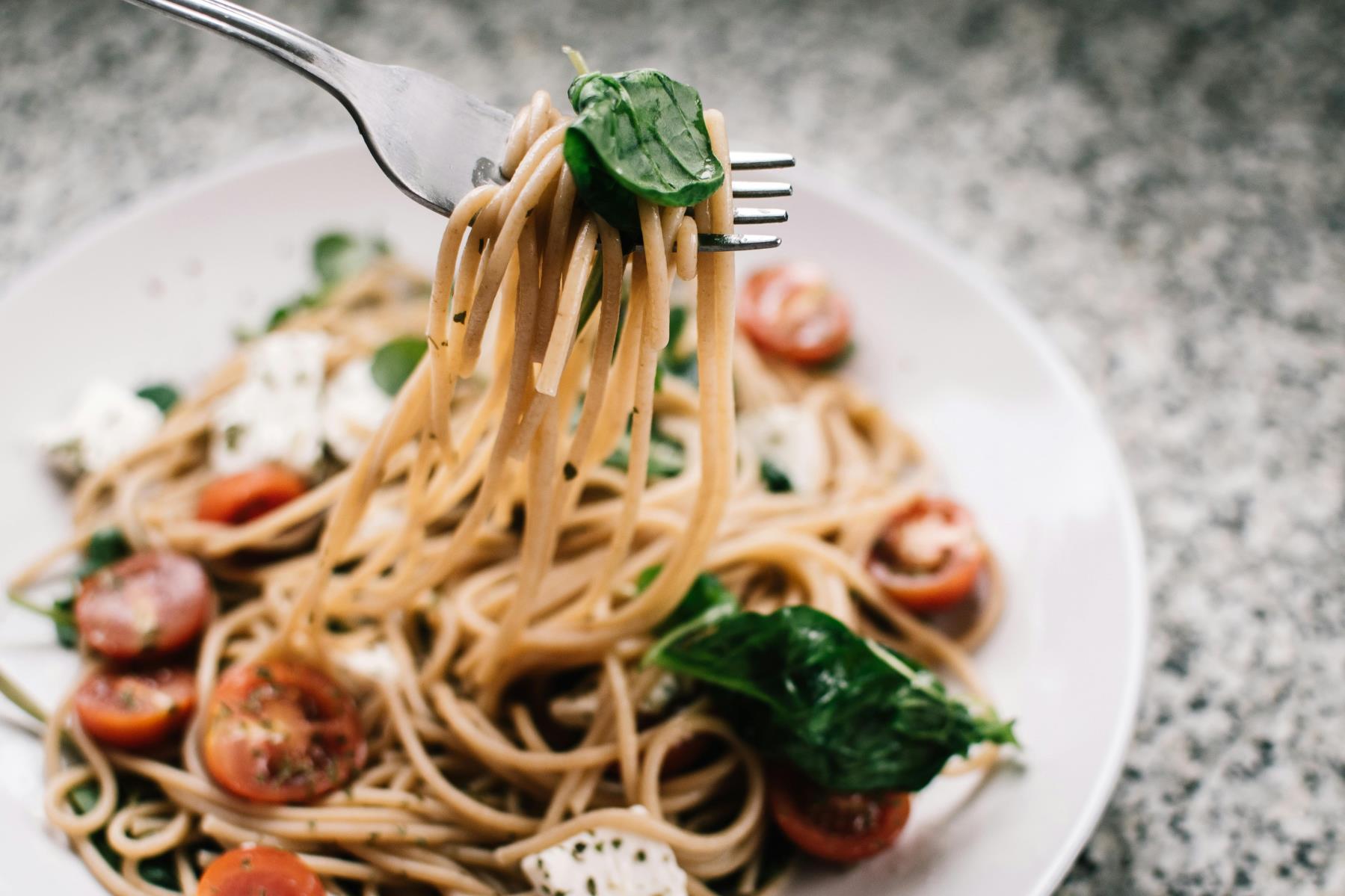
Photo by Lisa Fotios
Download a FREE Athletes Recipe Book
Understanding Carbohydrates
What are carbohydrates? Carbohydrates, or carbs, are sugar molecules. Along with proteins and fats, carbohydrates are one of three main nutrients found in foods and drinks. Your body breaks down carbohydrates into glucose. Glucose, or blood sugar, is the main source of energy for your body's cells, tissues, and organs.
Most carbohydrate foods come from plant-based sources. The typical sources of carbohydrates that we eat include:
- Breads
- Grains
- Cereals
- Fruits
- Vegetables
- Beans
- Peas (legumes)
Did you know that your brain relies on glucose as its main source of energy. In the adult brain, neurons have the highest energy demand, requiring continuous delivery of glucose from blood. So, if you have ever found yourself having brain fog or stumbling over words after a hard workout on an empty stomach you know why!
The absolute minimum amount of carbs required per day for healthy brain function is 150g.

Photo by MART PRODUCTION
Download a FREE Athletes Recipe Book
Sports Nutrition is different than Regular Nutrition
Sports drinks and gels sometime get a bad name and get blamed for excessive weight gain, but this is unfair when we think about training for an endurance event like IRONMAN or marathon.
Sports specific hydration and nutrition products have been specifically developed to be keep athletes hydrated and fuelled to take on even the hardest training session, so keep an open mind to using them.
Your energy levels are directly correlated to the amount of food you put in your body. Carbohydrates are the body’s main fuel source for exercise. The body utilizes two forms of carbs for energy: dietary carbs and carbs stored in the muscle and liver (called glycogen).
Dietary carbs are broken down within a few hours of eating, whereas protein and fat need longer to be digested. When eating within 60 minutes of a workout, a carb-rich snack is the best choice of fuel. But if you have 2-3 hours until your workout, a well-balanced meal with carbs, protein, and a little bit of fat works well. As you can what you eat depends on when you eat it and how close to your training session and what type of training session it is – a high intensity short workout versus a long endurance session.
For example, you may eat a healthy meal like a tuna salad just before a running session and feel uncomfortable during the whole session. This healthy meal should have been eaten 1-2 hours before your session to allow your body to process it and have it available as fuel.
Do you want some recipe ideas? Check out our FREE recipe books
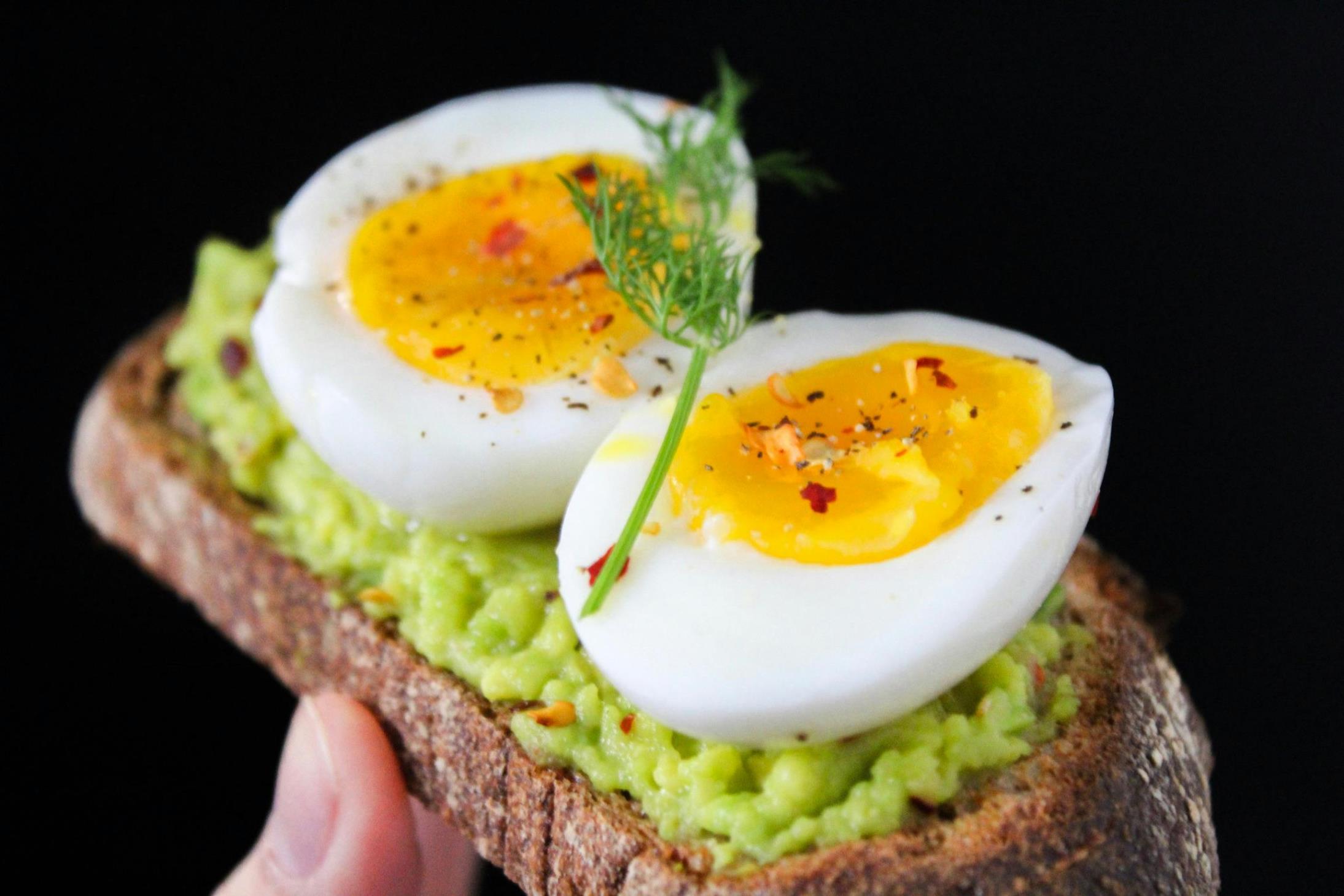
Photo by Jane Doan
Download a FREE Athletes Recipe Book
Fuelling with a Low Carb, High Fat diet
Fat adapted training has become popular and is based on providing your body with few carbohydrates and forcing your body to change its energy source to body fat stores which are theoretically limitless. As you can see that having a limitless fuel source for endurance events can be attractive.
“On the plus side there are important physiological and hormonal adjustments with effects such as reduced carbohydrate consumption and, as a result, an optimized fat metabolism,” explains sports scientist Björn Geesmann.
“On the debit side, there is an increased susceptibility to infection and greater fatigue,” says Geesmann. In addition, muscles may suffer when your body tries to convert muscle protein into glucose, i.e. fuel, in the absence of carbohydrates.
Dr. Samuel Impey, sports scientist, and former head of nutrition at Team Wiggins, a professional cycling team says, “there’s some fundamental biomechanical reasons that pre-dispose most of us to being naturally carb-fuelled”.
He pointed out that energy from carbs can be released up to three times as fast as the energy from fat and the combustion of 1 litre of oxygen yield 4.68 calories from fat compared to 5.06 calories from carbohydrate starch.
He says that research has linked increased pre-performance carb intake with better athletic performance (Burke et al in 2011) and carbohydrate requirements increase in line with the
level of training intensity and duration.
He advised it is best to mix high and low GI carbs in the meal before exercise such as porridge with fruit or honey to fuel both high intensity spikes and endurance efforts.
Your body can normally absorb one gram of carbs per minute but if you consume a mix of glucose and fructose you can increase this t0 up to 90 grams per hour. This could lead to being able to sustain higher power output for longer.
Do you want some recipe ideas? Check out our FREE recipe books
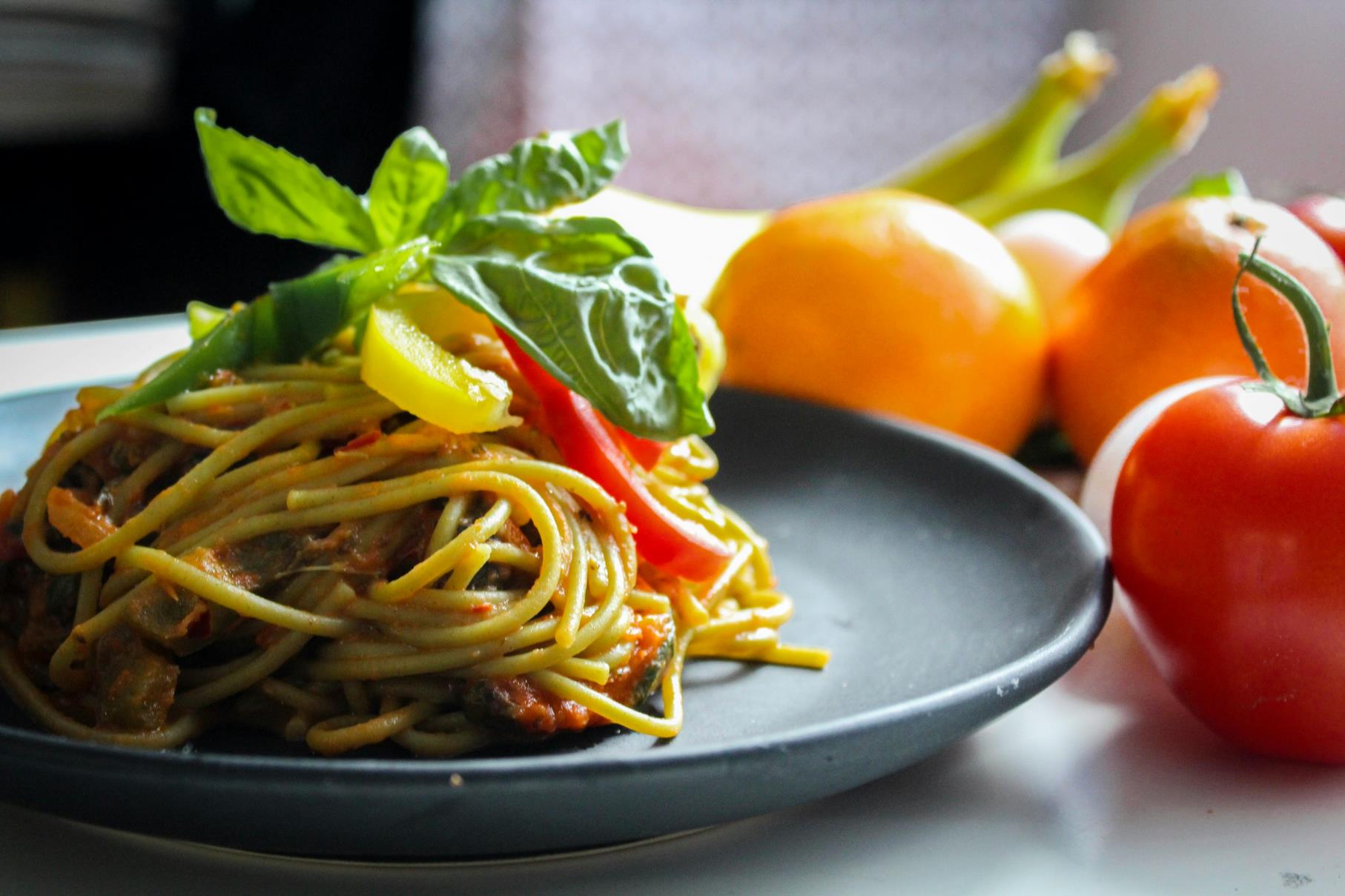
Photo by Jane Doan
Download a FREE Athletes Recipe Book
What to Eat and When
As we have seen what type of training session will inform what and when we eat. This is guideline and will depend on the specific way you metabolise different foods and if you have any allergies. I have also assumed you would like to use carbs as a fuel source.
1. Short High Intensity Training Session
Exercise up to one hour should not need more than 30-60g pf glucose per hour. Plan on a moderate- to high-carbohydrate meal that also includes protein approximately three to four hours before the HIIT workout, and then another high-carbohydrate snack within an hour after the workout. Good options for a pre-workout meal include:
- Whole-wheat toast with peanut butter and banana.
- Non-fat Greek yogurt or cottage cheese with fruit
- Dried fruit and almonds
If you are tight on time, you could consume a sports drink or gel.
Research shows that a 3:1 ratio of carbohydrates-to-protein within 30 minutes of completing a HIIT workout is best for replacing energy stores in preparation for the next high-intensity workout. Suggestions for post-workout nutrition are similar to pre-workout meals and include:
- Whole-grain cereal with fruit and soy milk
- Whole-wheat crackers with fruit and cheese
- Hummus or grilled chicken and pita bread
Or you may prefer a recovery drink with protein and carbohydrates for convenience.
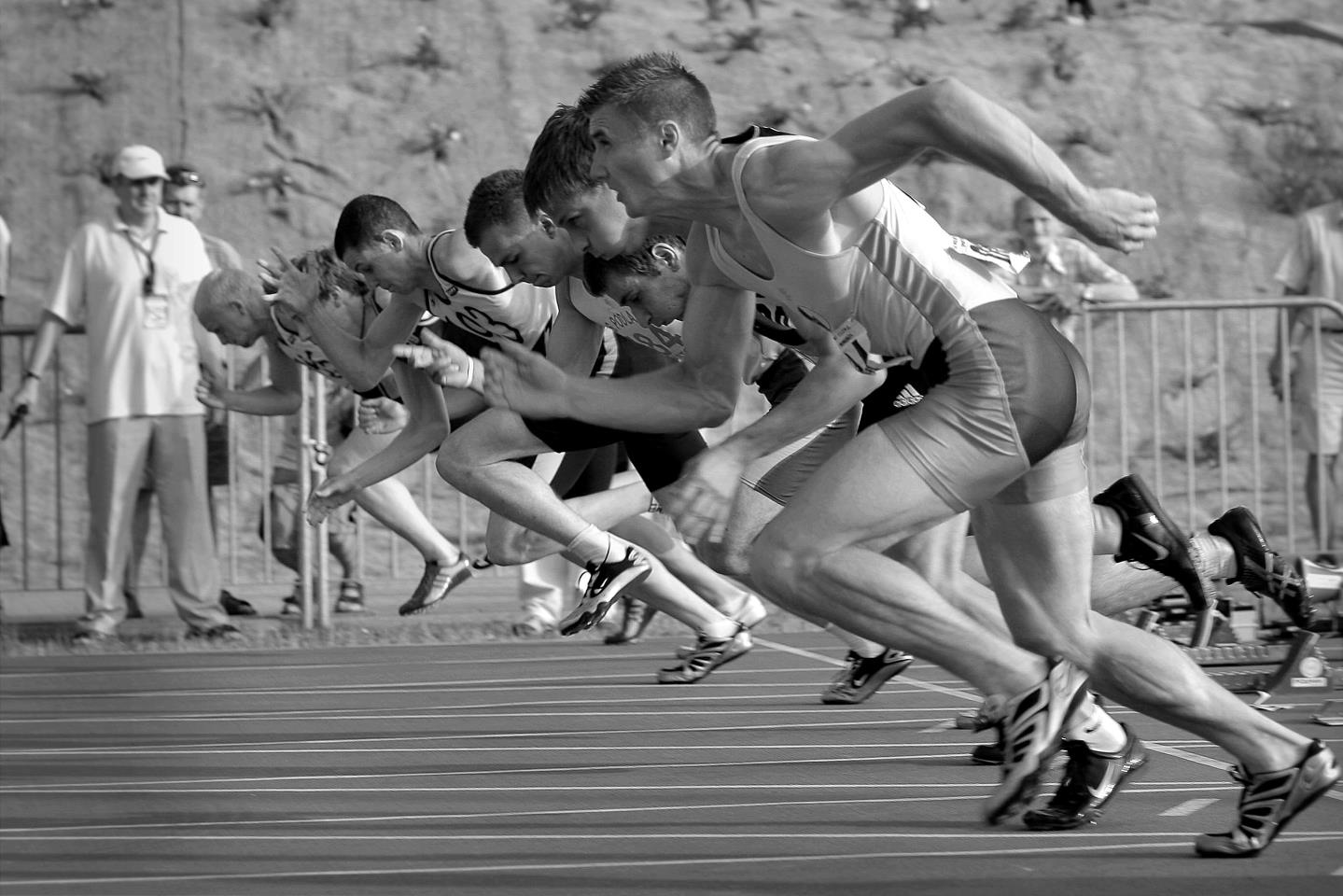
Photo by Pixabay
Download a FREE Athletes Recipe Book
2. Long Endurance Session
Workouts over 1 hour will need a mix of glucose and fructose of 60-90g per hour and during your session you will need to eat something like bars and solids like bananas, boiled potatoes, or rice cake bars to replenish your glycogen stores.
What you eat before and after is specific to you so you should experiment on those long sessions in training.
Here’s an example of what some athletes choose:
- 2 hours before the long session: Oatmeal, granola, avocado toast, a PB &J are all great choices.
- 1 hour before the long session: Something easy to digest like an energy bar should settle well. You could also include 8-12 ounces of a sports drink with electrolytes to make sure you’re properly hydrated.
- 30 min or less before the long session: Keep it basic here with simple sugars: fruits such as a banana, dates, or applesauce. If you have a favorite energy chew, this can give you a good pre-run boost.
What not to eat before a long training session or race:
- Spicy foods: Many spices can cause heartburn and gastrointestinal distress.
- High-fat foods: These foods take longer to digest and are more likely to sit in your stomach and result in a heavy feeling on the long session.
- High-fiber foods: they can cause you to bloat and distress your digestive system
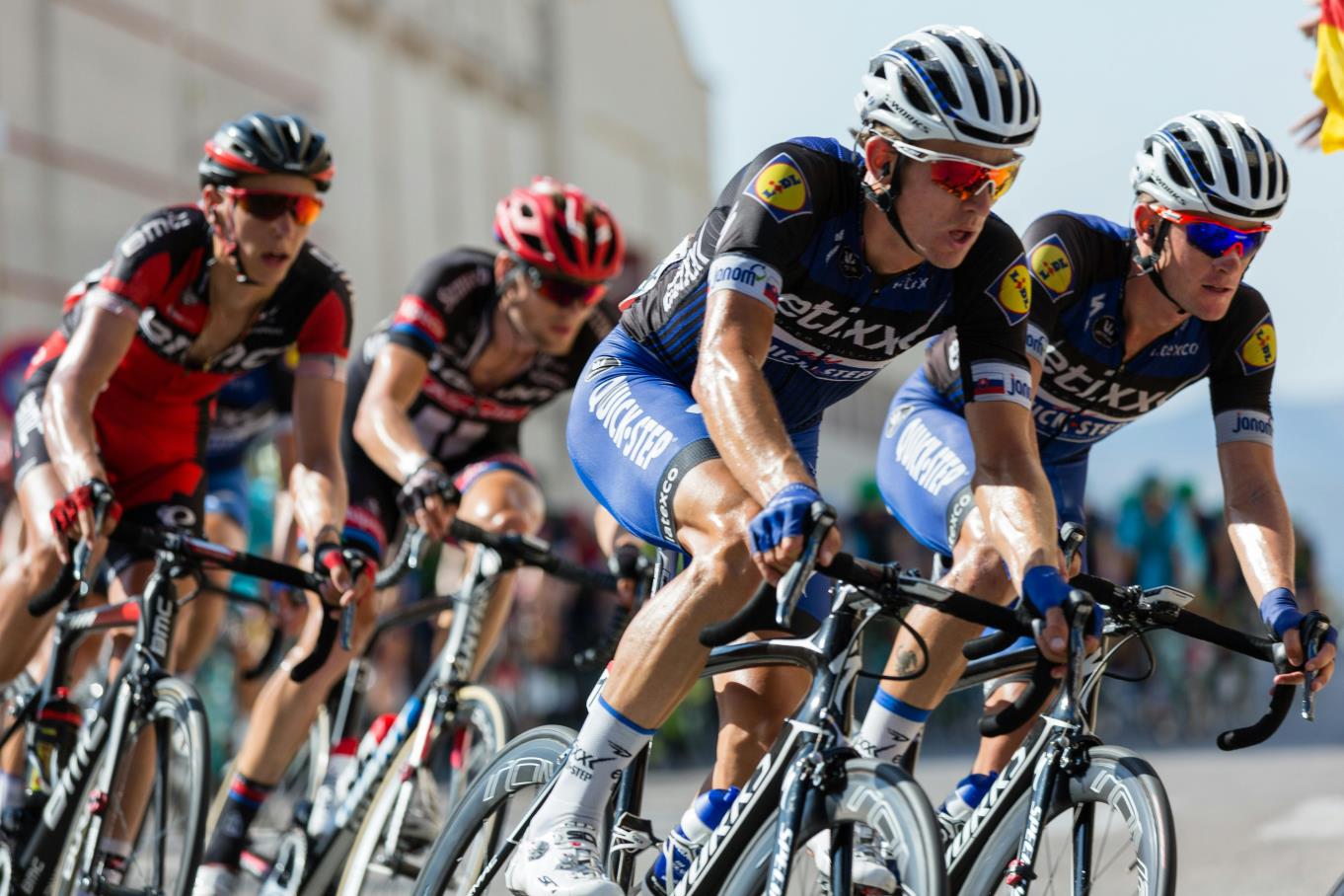
Photo by Pixabay
Download a FREE Athletes Recipe Book
3. Post Exercise
After your workout your body will need sufficient carbs to help spare protein reserves needed for muscle growth, maintenance, and repair. This means that if you were to train fasted you may not be feeding your muscles spare protein to make them bigger, stronger and ultimately faster.
Do you want some recipe ideas? Check out our FREE recipe books

Photo by Annushka Ahuja
Download a FREE Athletes Recipe Book
Conclusion: Carbohydrates – friend or foe?
The is a lot to consider around fuelling your training and race and it boils down to your personal goals. You should consider the goals of each training session and your ultimate race objectives. The key is to try out in training what you plan to eat before, during and after your race and what works for you whether it be low carb or carbohydrate based.
If you need further advice, then seek out a qualified coach.
Karen Parnell is a Level 3 British Triathlon and IRONMAN U Certified Coach, WOWSA Level 3 open water swimming coach, 80/20 Endurance Certified Coach and NASM Personal Trainer and Sports Technology Writer.
Need a training plan? I have plans on TrainingPeaks and FinalSurge:
I also coach a very small number of athletes one to one for all triathlon distances, open water swimming events and running races, email me for details and availability. Karen.parnell@chilitri.com
Do you want some recipe ideas? Check out our FREE recipe books
Frequently Asked Questions (FAQ) about Athletes and Carbohydrate Diets
1. Are low carbohydrate diets effective for athletes?
Low carbohydrate diets, such as the Ketogenic, LFHC (Low Fat High Carbohydrate), and low carb Paleo diets, have gained attention in the athletic community. While some athletes report benefits from these diets, their effectiveness can vary depending on individual factors such as the type of sport, training intensity, and personal metabolic response. Some studies suggest that low carbohydrate diets may improve endurance performance in certain athletes, while others indicate potential drawbacks such as reduced power output and muscle glycogen depletion during high-intensity activities.
2. Do carbs have a bad reputation among athletes?
Carbohydrates have received mixed reviews in the athletic community, with some advocating for their importance as a primary fuel source for sustained energy and performance, while others argue for the benefits of low carbohydrate diets for fat adaptation and metabolic flexibility. Carbs have historically been considered essential for athletic performance due to their role in replenishing glycogen stores and providing quick energy during exercise. However, recent trends and studies have challenged this perspective, leading to a debate over whether carbs have been unfairly vilified or if alternative dietary approaches offer legitimate advantages.
3. How should athletes and coaches make informed decisions about carbohydrate intake?
To make informed decisions about carbohydrate intake, athletes and coaches should consider factors such as individual energy needs, training goals, performance demands, and dietary preferences. It's essential to consult with qualified nutrition professionals and sports scientists who can provide personalized guidance based on scientific evidence, metabolic testing, and performance assessments. Additionally, staying abreast of the latest research findings and recommendations from leading professional teams can help athletes navigate the complex landscape of sports nutrition and optimize their dietary strategies for training and competition.
4. What do the latest studies suggest about carbohydrate utilization in athletes?
Recent studies on carbohydrate utilization in athletes have yielded diverse findings, reflecting the complexity of individual responses to dietary interventions. While some research supports the benefits of high carbohydrate diets for optimizing glycogen stores and enhancing endurance performance, other studies suggest that low carbohydrate approaches may improve metabolic efficiency, fat oxidation, and endurance capacity in certain contexts. It's important to critically evaluate the methodology, participant characteristics, and practical implications of each study to determine its relevance to specific athletic populations and performance goals.
5. What are leading professional teams recommending to their athletes regarding carbohydrate intake?
Leading professional teams often tailor their dietary recommendations to the unique needs and preferences of their athletes, considering factors such as sport type, training volume, competition schedule, and metabolic profiles. While some teams advocate for traditional high carbohydrate diets to support energy demands and performance consistency, others explore alternative approaches such as periodized carbohydrate intake, strategic fuelling strategies, and individualized nutrition plans. Ultimately, the goal is to optimize performance, recovery, and overall health while respecting the diverse physiological responses and dietary preferences of athletes at different levels of competition.
References
Type of carbohydrates, Sparknotes
https://www.sparknotes.com/health/carbohydrates/section1/
High-Quality Carbohydrates and Physical Performance, Mitch Kanter, PhD
https://www.ncbi.nlm.nih.gov/pmc/articles/PMC5794245/
Sugar for the brain: the role of glucose in physiological and pathological brain function
Philipp Mergenthaler,1 Ute Lindauer,2 Gerald A. Dienel,3 and Andreas Meisel1
Are carbohydrates really our enemy, Muscle and strength
https://www.muscleandstrength.com/articles/are-carbohydrates-really-our-enemy.html
Carbohydrates for training and competition: Louise Mary Burke, John A Hawley , Stephen H Wong and Asker Jeukendrup
(PDF) Carbohydrates for training and competition (researchgate.net)
Myth-busting: sport scientist debunks prolific “carb are bad” fallacy, Nutraingrdients.com

